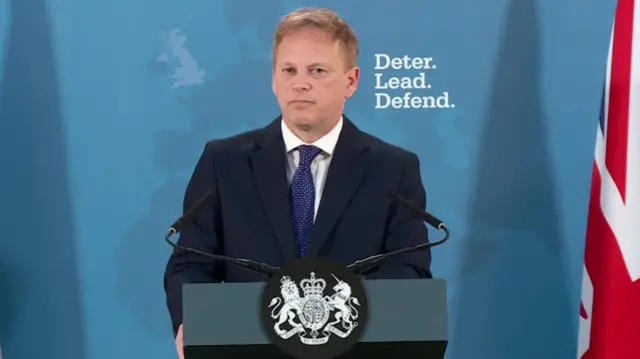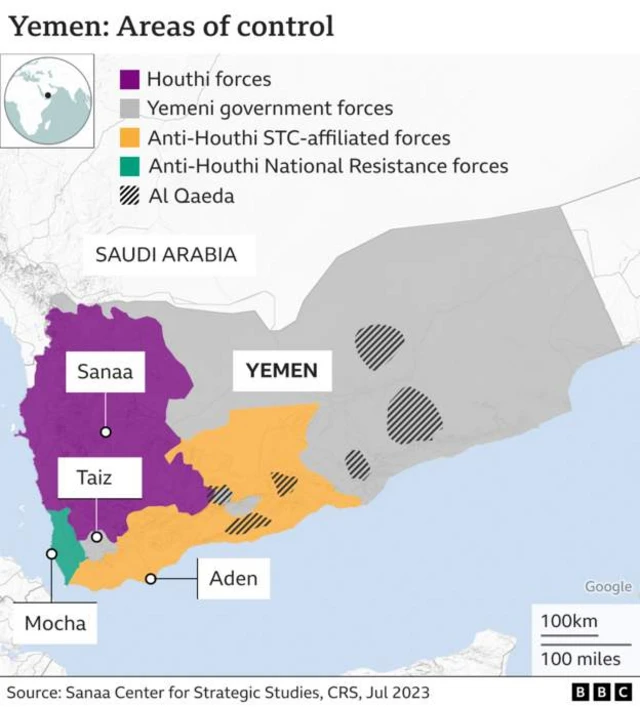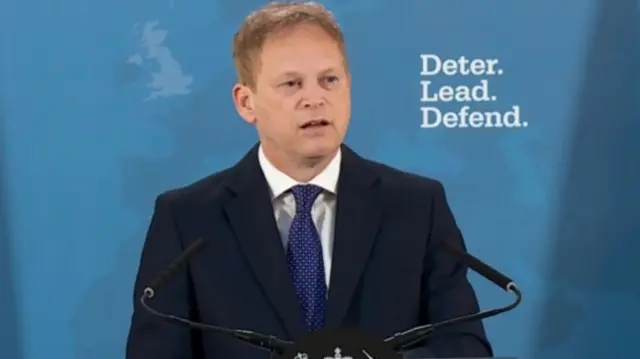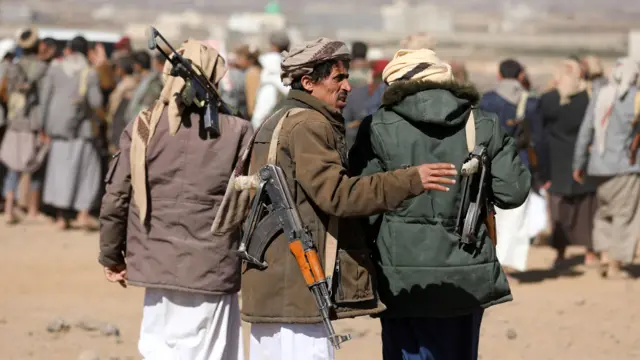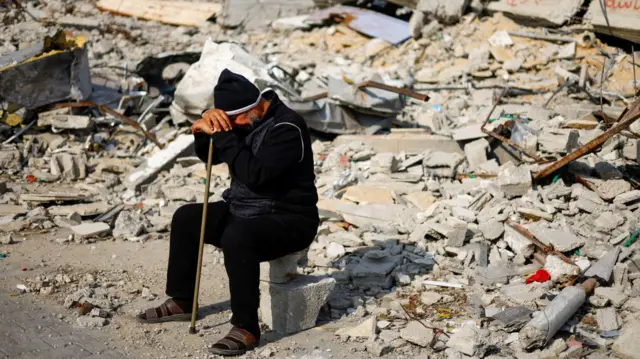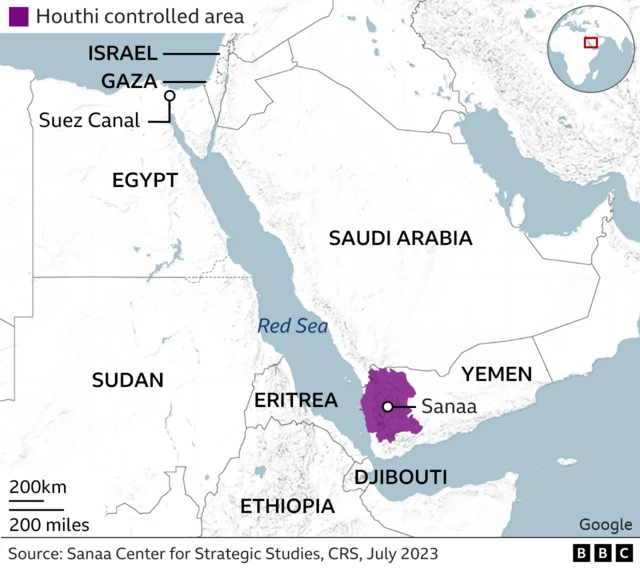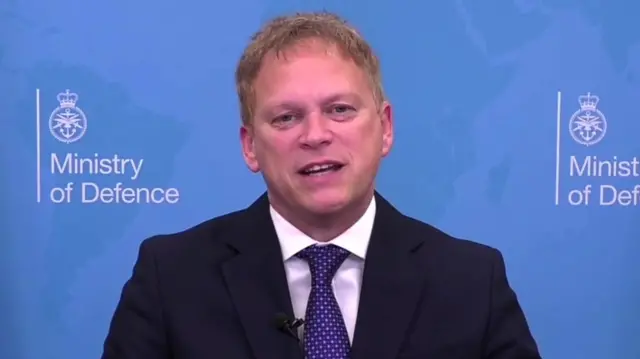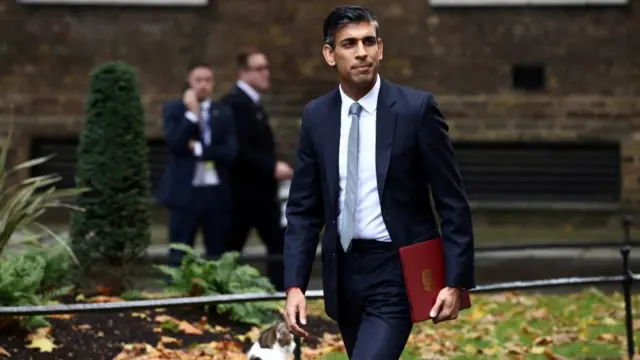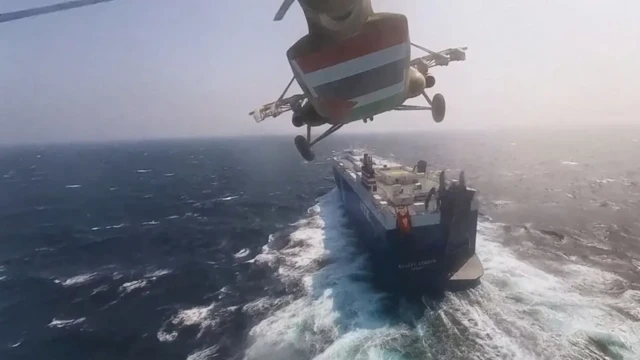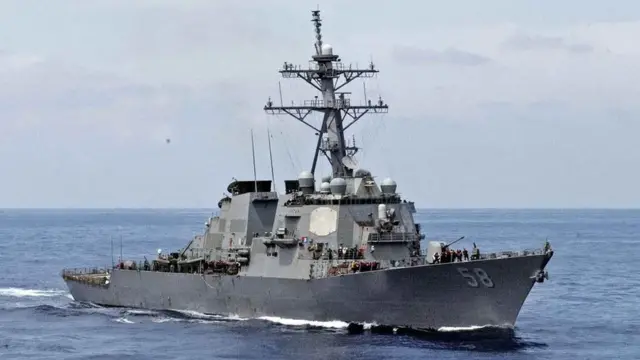UK defence secretary: Iran connection to Houthis 'very clear'published at 11:02 GMT 15 January 2024
One of the last questions Grant Shapps is asked covers how Iran has responded to the strikes by US and UK forces on Houthi targets in Yemen.
"We see that the connection [between Iran and the Houthis] is very clear," the UK defence secretary tells those watching his speech at Lancaster House in central London.
Iran's government in Tehran is suspected of supplying the Houthis with weapons, and the US says Iranian intelligence is critical to enabling them to target ships.
But when pushed on what Iran has said, Shapps declines to share that information.
We're going to leave the UK defence secretary's first major speech in the role there.
